Astonishing video captures miles of scorched earth in LA, where multimillion-dollar mansions once stood, now reduced to smoldering ruins as wildfires continue
The historic Los Angeles wildfires have revealed horrifying levels of destruction. Aerial footage showcases once-idyllic upscale neighborhoods reduced to smoldering ruins.
Blocks of Multi-Million-Dollar Mansions reduced to ashes
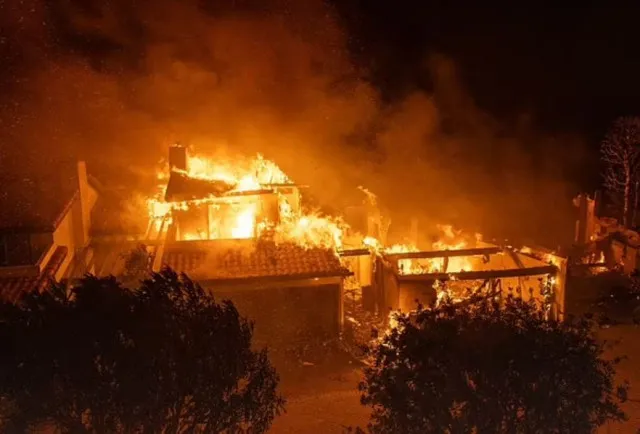
Drone footage reveals entire blocks of luxury homes turned to ash, leaving behind only charred tree stumps and skeletal remains of buildings.
Small fires still burn in the debris, showing the relentless nature of the infernos.
Fire Chief Kristin Crowley described the blaze as unprecedented. She reported it began accidentally in a backyard around 10 a.m. Tuesday.
Within minutes, the fire grew uncontrollably, fanned by bone-dry vegetation and powerful winds.
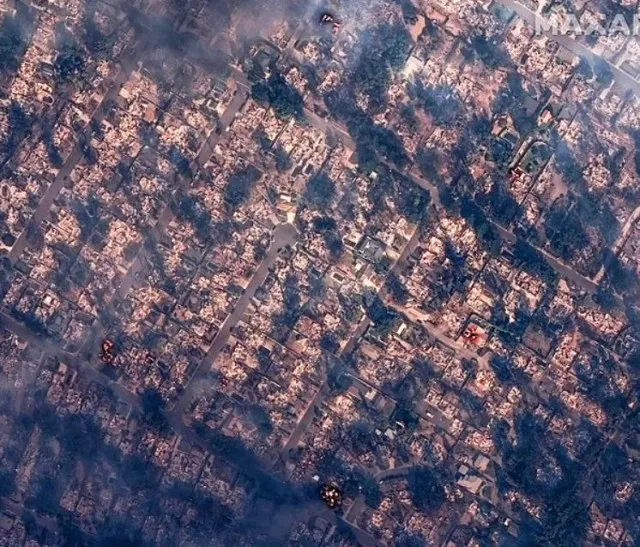
According to report, less than 48 hours after the first spark, the fire had destroyed vast areas, causing an estimated $60 billion in damages.
Pacific Palisades, a celebrity enclave, has been hit hardest.
Nearly 12,000 acres have burned, including homes of stars like Paris Hilton and Anthony Hopkins.
Iconic areas and infrastructure devastated
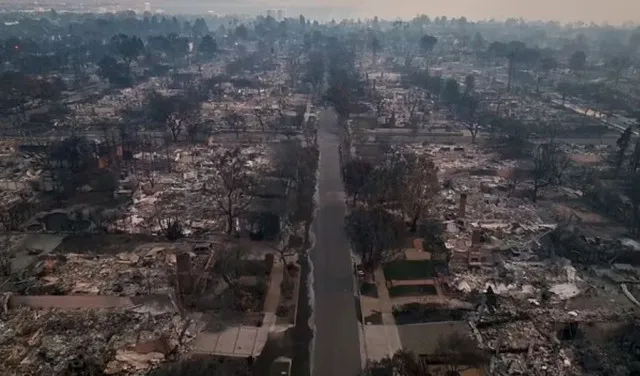
Sunset Boulevard, a famous stretch through Pacific Palisades, was engulfed in flames.
Banks, restaurants, and homes were obliterated. Emergency crews used bulldozers to clear abandoned luxury cars, creating pathways for firefighters.
In Studio City, a four-story building fire spread to neighboring homes, adding to the destruction.
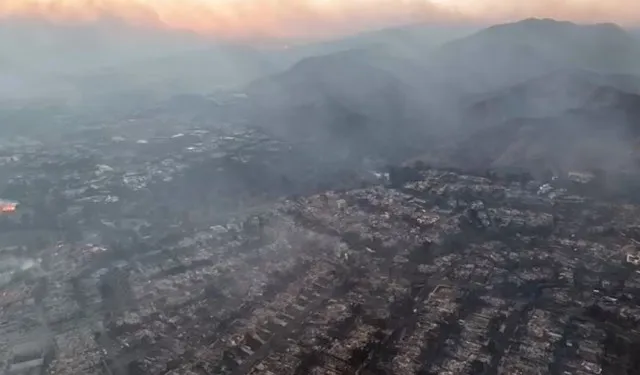
At least 2,000 structures have been lost, with 20 square miles of land destroyed.
Scientists attribute fires to ‘Hydroclimate Whiplash’
Experts from UCLA blame the disaster on “hydroclimate whiplash.”
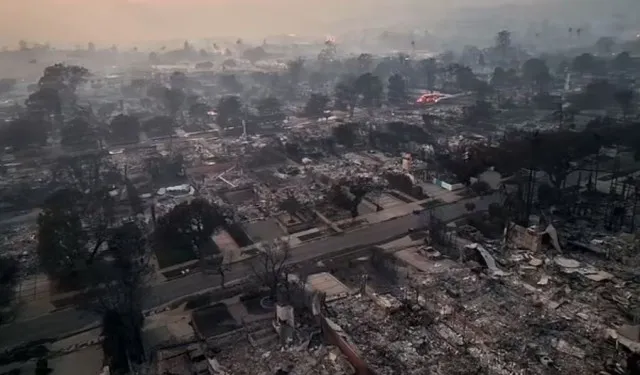
This phenomenon involves rapid shifts between extreme wet and dry weather.
Last year’s El Niño rains fueled vegetation growth, which later dried and became highly flammable.
Santa Ana winds further intensified the flames. These gusty, warm winds swept across the region, driving the fire’s rapid spread.
A litany of failures by city officials has come to light. Fire hydrants lacked water due to unfilled reservoirs, and live electrical cables fueled the flames.
Developer Rick Caruso criticized the city’s infrastructure and leadership, calling the situation “a systemic problem.”
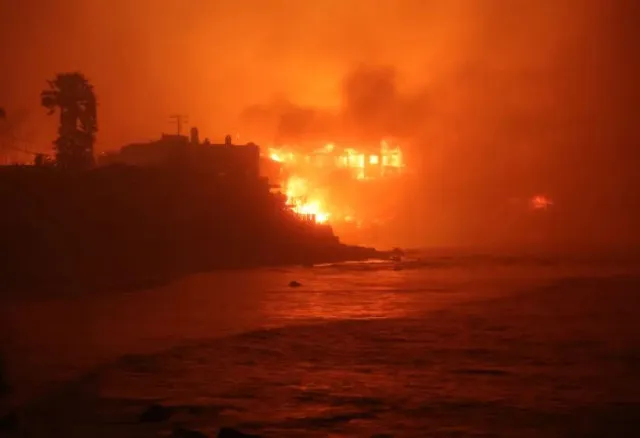
Firefighters radioed stations about dry hydrants, leaving homes defenseless.
Caruso also condemned LA Mayor Karen Bass for being abroad during the disaster. “Residents are paying the ultimate price for failed leadership,” he said.
Leaders face tough questions amid catastrophe
California Governor Gavin Newsom became emotional addressing criticism from Donald Trump, who blamed him for the wildfires.
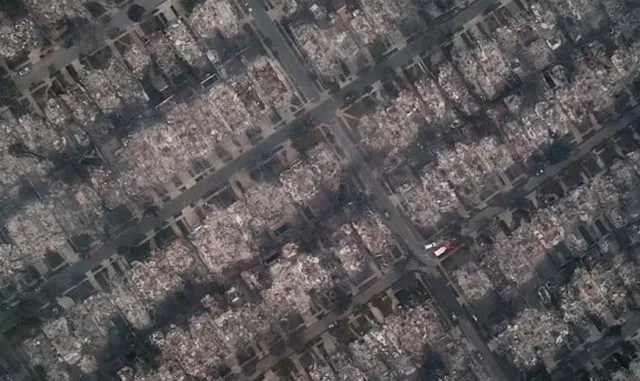
Meanwhile, Mayor Bass was questioned by reporters about her absence during the crisis.
Asked if she owed residents an apology, she offered no response, underscoring the anger and frustration among displaced citizens.
Five people have lost their lives, and the death toll may rise as authorities deploy K-9 units to search for remains.
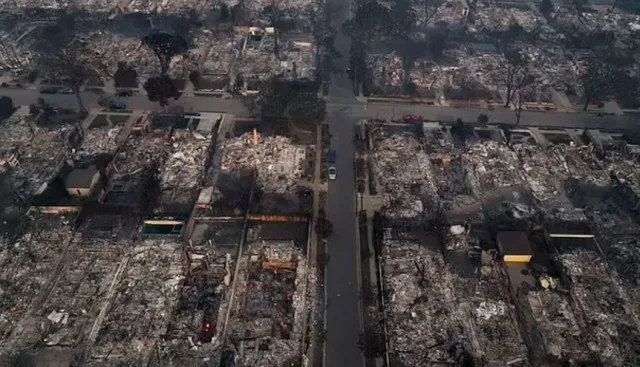
Thousands of residents have fled, leaving behind everything they owned.
This unprecedented disaster has left LA scorched and grieving, with recovery efforts expected to take years.
The resilience of those affected, however, continues to inspire hope.